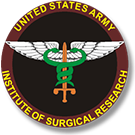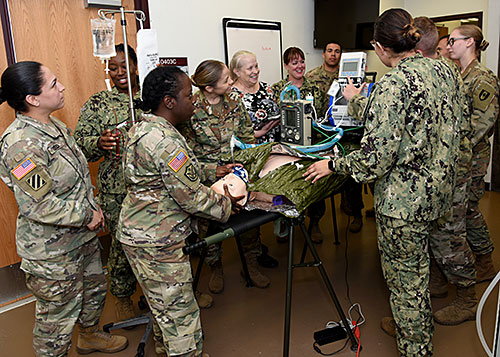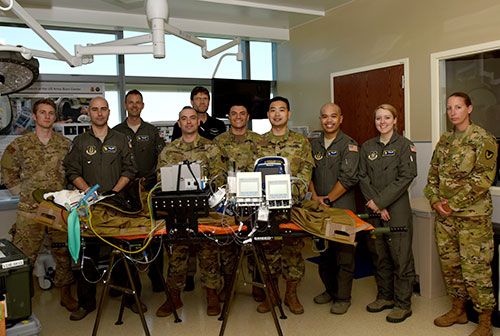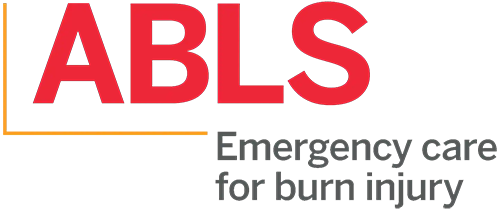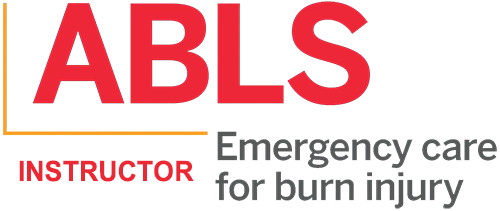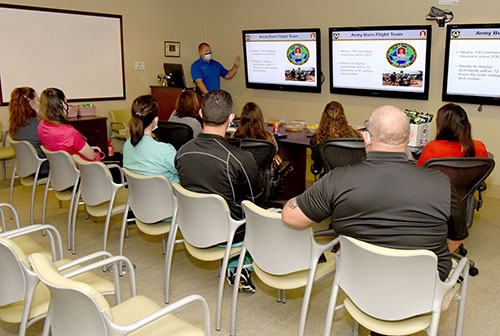Education & Training
Overview
The USAISR Burn Center offers a robust catalog of training options suitable for a variety of healthcare providers looking to gain burn care knowledge and experience or for individuals preparing to deploy. Our mission is to achieve excellence in patient outcomes by providing education and training in the care and treatment of burn injuries through the integration of scientific principles, concern for human dignity and adherence to professional standards.
Robust training programs offered for various groups including:
- Special Forces Medics
- Critical Care Flight Paramedics
- Critical Care Nursing Students
- Allied Medical Education
- Graduate Medical Education
For more information, contact us by email.
Course Offerings
Pre-deployment Readiness Training
(earn up to 40 CEUs)
This is a two week course available to teams or groups of service members who are preparing for deployment. This course includes introduction to management of burn injured patients with a focus on teambuilding, Advance Burn Life Support (ABLS) Certification (as available), hands-on training with skilled Burn Center staff and high-fidelity simulation training. The Burn pre-deployment readiness training can be tailored to meet specific training needs or requests. Course attendees may earn up to 40 CEUs through Elsevier.
USAISR Clinical Burn Symposium
(earn up to 13.25 CEUs)
This multi-day symposium is offered on a quarterly basis and comprised of lectures given by subject matter experts across the USAISR Burn Center. The Burn Symposium affords attendees the opportunity to enhance knowledge about assessment, management and therapies for burn injured patients. The lectures also include updates to current clinical practice guidelines that impact care delivery. The Burn Symposium provides information that will immediately be applicable to all aspects of burn care for the novice or experienced healthcare provider, along with providing up to 13.25 CNE/CME.
Advanced Burn Life Support (ABLS) Provider Certification
(earn up to ~7 CEUs)
Advanced Burn Life Support (ABLS) is an eight-hour course for physicians, nurses, physician assistants, nurse practitioners, therapists, paramedics and anyone interested in emergency care burns. This live, hands-on training is designed to provide the "how-to" of emergency care for a burn patient through the critical first 24 hours post injury. Following a series of lectures, case studies are presented for group discussions. Additionally, an opportunity to work with a simulated burn patient is provided to reinforce assessment principles, stabilization of the patient, and the American Burn Association transfer criteria to a Burn Center. Testing consists of a written exam and a practicum. The course offers 7.40 CNE hours/ 7.25 CME hours.
Advanced Burn Life Support (ABLS) Instructor Certification
The core foundation of the ABLS Program are the instructors that are responsible for the mission of the program. ABLS Instructors are ABLS certified individuals that have been identified as Instructor Candidates and completed the requirements for becoming an ABLS Instructor. Instructor candidates must have at least three years of burn experience, be a physician, PA, RN, NP, or a paramedic and be a current member of the American Burn Association (ABA). Minimum teaching requirement to maintain current instructor status: two classes in four years. Candidates certified as instructors will be re-evaluated based on:
- Number of courses taught (after two courses)
- Student and peer feedback from provider courses
- Maintain active contact information with the ABA Central Office, and notify the office in a timely fashion of any change in status
Clinical Rotation Program
Clinical rotations allow professional and para-professional students to apply knowledge from the classroom to real life medical situations. During rotations, students work directly with members of the multidisciplinary team in the Burn Center and have access to burn-injured patients, in order to gain valuable hands-on experience. The USAISR Clinical Education department coordinates clinical rotations for over 20 different programs. Program coordinators work with the USAISR Clinical Education department to establish a clinical rotation schedule that will meet the clinical practice requirements of the course. Additionally, the Clinical Education team works with the Burn Intensive Care Unit (BICU), Progressive Care Unit (4 East), Perioperative Nursing Service (PONS), Department of Rehabilitation (PT/OT), and Respiratory Therapy Department (RT) to ensure they can accommodate the clinical rotation requests and to develop appropriate rotation goals and objectives.
Trauma Nursing Core Course
In support of the Defense Medical Readiness Training Institute (DMRTI) and Brooke Army Medical Center (BAMC), the USAISR Clinical Education department supports the Trauma Nursing Core Course (TNCC). TNCC delivers the knowledge, critical thinking skills and hands-on training needed to keep trauma patients safe. The overall course objective is to improve trauma patient outcomes by providing nurses with foundational trauma knowledge, skills, and a systematic Trauma Nursing Process to guide trauma patient care. After taking TNCC, nurses will be able to systematically assess the trauma patient, to intervene and/or assist with interventions, and to provide evidence-based trauma nursing care within the context of a trauma team.
Management of Burn and Multiple Trauma Course
(earn up to 36 CEUs)
The USAISR Clinical Education department supports the Management of Burns and Multiple Trauma week-long course. The course is designed to enhance the participants understanding of the management and rehabilitation goals of burn and multiple trauma injuries. Course participants will receive didactic training/laboratory sessions on the management of burn and multiple trauma injuries from point of injury to reintegration with topics including: appropriate burn wound care, surgical interventions, nutrition concern with burn population, inpatient and outpatient burn rehabilitation, amputee management, amputee rehabilitation, prosthetic use, management of fractures, management of TBI, and management of combat stress management. Special emphasis will be placed upon minimizing devastating and life-long disability and maximizing functional outcomes. All healthcare providers are eligible to attend. The Management of Burns and Multiple Trauma Course is offered each September. Attendees may earn up to 28-36 CEU/CMEs.
Continuing Education (CE)
Continuing education (CE) helps those in the various healthcare fields maintain competence and learn about new and developing areas of their field. The activities may take place as live events, written publications, online programs, audio, video, or other electronic media. Content for these programs is developed, reviewed, and delivered by faculty who are experts in their individual clinical areas. The Clinical Education department serves as the planners for CE requests. Activity requests are created from the content of the programs and submitted for approval for continuing education credit. The Clinical Education staff also activates the online requirements for personnel applying for the CEs. Upon activity completion, Clinical Education closes out each activity and send outs certificates of completion for all participants that complete the requirements.
Clinical Augmentation Program
During the COVID-19 global pandemic, the ISR Education Office facilitated on-the-job training of research and administrative nursing staff (augmentees) and twenty-four combat medics from Echo Company, 232nd Medical Battalion. This included developing an on-boarding/training plan and SOP while maintaining force health protection. In addition to overseeing multiple training rotations, the Department of Clinical Education augmented clinical nursing care for BICU, 4 East, and PACU, as well as conducting tours of the ISR clinical departments.
For more information, contact us by email.
 An official website of the United States government
An official website of the United States government
 ) or https:// means you've safely connected to the .mil website. Share sensitive information only on official, secure websites.
) or https:// means you've safely connected to the .mil website. Share sensitive information only on official, secure websites.
